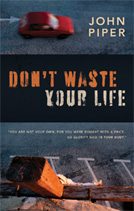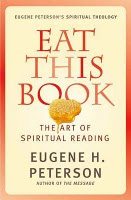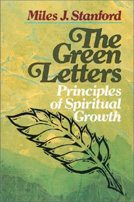Steve Cable considers the causes of procrastination from a biblical perspective. Understanding why we procrastinate is an important step in developing a Christ-centered cure for our ailment. Don’t wait until it’s too late. Stop procrastinating today!
How many of us would drop twenty dollar bills out of our car window as we drive down the highway or smash Rolex watches with a hammer as a means of relaxation? Yet, many of us consistently waste the most valuable resource available to us—our time. Benjamin Franklin put it this way: “Dost thou love life? Then do not squander time; for that’s the stuff life is made of.”{1} From a biblical perspective, Paul admonishes us: “Therefore be careful how you walk, not as unwise men but as wise, making the most of your time, because the days are evil” (Eph. 5:15-16).{2} Looking at this statement in the original language, Paul commands us to redeem our time; that is, take time which is part of a fallen, sinful world system and convert it into something good and eternal through using it wisely for God’s purposes.
If we are honest with ourselves, most of us will admit to feeling uncomfortable with our time stewardship. We want to use our time wisely, but when we look back on the last week, month, or year, we feel some remorse over the amount of time we wasted. A big reason that many of us are uncomfortable with how we use our time is the affliction of procrastination. One researcher in this field summarized her conclusions this way: “Procrastination is, hands down, our favorite form of self-sabotage.”{3} In other words, procrastination undermines our attempts to accomplish our plans and goals.
I want to look at the epidemic of procrastination from a biblical perspective. With God’s help we will gain a better understanding of why we struggle with procrastination and learn some practical perspectives to help us conquer this time killer.
A Biblical Perspective on Time
You might be asking, Is this really a Christian worldview issue or simply a self-help question? Well, the Bible is very clear on how much God is concerned about how we use our time. Let me summarize a few of the principles the Bible teaches us about time:
1. God created time as a part of His “good creation” (Gen. 1:1).
2. God transcends time, existing in the past, present, and future simultaneously (Is. 43:12, Heb. 13:5, 1 Pet. 1:20, 2 Pet. 3:8).
3. God works in this world within the context of time (Gal. 4:4-5).
4. Our time on earth is precious and fleeting (Jas. 4:14, 1 Pet. 1:24).
5. Time has no meaning or value in eternity (Rev. 4:8-10).
6. God is very concerned with how we use our time on this earth (Eph. 5:16-17).
One way to see how much the Bible has to say about time is to replace references to life on this earth with the idea of time on this earth. After all, Ben Franklin was right in saying that time is the stuff that earthly life is made of. For example, let’s apply this idea to a familiar verse, 2 Corinthians 5:14:
For the love of Christ controls us, having concluded this, that one died for all, therefore all died; and He died for all, so that they who “have time on this earth” might no longer “use their time” for themselves, but for Him who died and rose again on their behalf.{4}
So, Christ’s sacrificial love for us demands that we use our time for Him.
Another example would be 1 Corinthians 10:31:
So whether you eat or you drink or “however you spend your time, use all of your time for” the glory of God. (NIV)
Peter highlighted the importance of how we use our time when he wrote:
If you address as Father the One who impartially judges according to each one’s work, conduct yourselves in fear during the time of your stay on earth; knowing that you were not redeemed with perishable things like silver or gold from your futile way of life inherited from your forefathers, but with precious blood, as of a lamb unblemished and spotless, the blood of Christ (1 Pet. 1:17-20).
Knowing the heavy price our Father paid to redeem us, we should be very concerned about whether we are making the most of the time God has entrusted to us. It is very clear that misuse of our time is a great concern to God. As Christians, we have the ability to convert passing time into something good and eternal.
Now if any man builds on the foundation with gold, silver, precious stones, wood, hay, straw, each man’s work will become evident; for the day will show it because it is to be revealed with fire, and the fire itself will test the quality of each man’s work. If any man’s work which he has built on it remains, he will receive a reward. If any man’s work is burned up, he will suffer loss; but he himself will be saved, yet so as through fire (1 Cor. 3:12-15).{5}
Naturally, Satan and the world system want us to waste that time and pass into eternity having accomplished nothing of eternal value. Thus, anything that causes us to waste our time is a spiritual issue. Thoreau captured this truth when he wrote: “As if you could kill time without injuring eternity.”{6}
In other words, procrastination is not a casual laughing matter. It is of great concern to our Lord.
Procrastination: The Consequences
As we continue to consider how to conquer procrastination, it would be helpful to have a working definition. An anonymous pundit quipped, “They said procrastination was the source of all my sorrow. I don’t know what that big word means—I’ll look it up tomorrow!” Procrastination literally means “to put off until tomorrow.” One study defined it as “postponing the completion of a task to the point of feeling uncomfortable about one’s delay.”{7}
Well, feeling uncomfortable is not fun, but it doesn’t sound that bad. Is that the only consequence of procrastination? Whether it is putting off balancing the checkbook, yard work, term papers, filling out expense reports, or reading the Bible, many of us have learned to live with our favorite areas of procrastination. However, studies have shown that procrastination has many undesirable consequences.
A direct consequence is decreased performance and productivity. Some procrastinators say they put off starting projects because they perform better under pressure. Don’t kid yourself! A study of university students showed that students who procrastinated had significantly lower grades than those who did not. Christians are called to “keep our behavior excellent among the Gentiles” and to “work heartily as unto the Lord.” When procrastination impacts our performance, we are presenting a negative witness to the world.
The direct consequences of procrastination can be magnified well beyond our expectations. Consider these examples:
• In 1815, Napoleon was prepared to attack Wellington’s British army at dawn, but delayed his attack until 11 AM. This delay allowed the Prussians to arrive in time to attack the French flank turning a certain French victory into a bitter defeat. Literally, procrastination caused Napoleon to meet his Waterloo.
• On October 31, 1846, after a tortuous shortcut gone bad cost them several weeks, the Donner Party decided to rest for a few days rather than press on over the Sierra Nevada mountains. Their delay caused them to be trapped by a monster blizzard resulting in thirty-six people dying of starvation and the rest living out their lives with the stain of cannibalism.
• The nation of Israel chose to delay entering the Promised Land, and the result was forty years of wandering in the wilderness.
These are extreme examples, but most of us have experienced times when we put off getting car repairs, working on the house, or starting a project, and found out that the consequences were much worse than we anticipated.
In addition to the direct consequences, frequent procrastination increases stress, anxiety, and guilt with all their related side effects. A recent study found that “college students who procrastinate have higher levels of drinking, smoking, insomnia, stomach problems, colds and flu.”{8} Many times we delay a task because we feel we need to relax instead, but the ultimate result is greater levels of stress.
Procrastination: Some Causes
Most of us struggle with procrastination in one or more areas of our lives. However, what we share are common symptoms, not necessarily a common root cause. Studies of procrastination have identified some distinctly different causes. If you have a pain in your foot, you need to know whether it is a splinter or bone cancer before selecting a course of treatment. If you are going to conquer procrastination, you need to be aware of your primary root cause.
Two of the most common causes are laziness and avoiding negative feelings. These cause us to delay starting tasks that may be difficult or unpleasant in favor of more pleasurable activities. Research has found that considering a task as boring or adverse is more likely to result in procrastination than a lack of capability to do the task well.{9} The Bible often addresses this issue including Proverbs 24 which says:
I passed by the field of the sluggard
And by the vineyard of the man lacking sense,
And behold, it was completely overgrown with thistles;
Its surface was covered with nettles,
And its stone wall was broken down.
When I saw, I reflected upon it;
I looked, and received instruction.
“A little sleep, a little slumber,
A little folding of the hands to rest,”
Then your poverty will come as a robber
And your want like an armed man (vv. 30-34).
This cause is modeled by the college student who spends weeks playing video games and hanging out until the night before the term paper is due.
Two other common causes are lack of perspective and poor time management skills. This person is willing to take on an unpleasant task, but has a hard time knowing which tasks need to be tackled right away and which can or should be delayed. This cause is epitomized by the college student who begins working on their term paper at the beginning of the semester by spending hours selecting just the right binder and creating cover graphics rather than researching their topic.
Perfectionism and fear of failure drive some people to procrastinate. Some perfectionists recognize that they don’t have enough time to do a perfect job so they are discouraged about undertaking the job at all. Others believe they need uninterrupted time to be able to do a perfect job and they never can seem to clear off enough of their schedule to get started. And some wait until the last moment so they can blame any shortcoming of the finished product on insufficient time. They want to be able to say, “I am really much more talented than this shows, but I had to throw it together at the last moment. So, what can you expect?”
A very different cause is resentment. This person says, “I know I should be starting this task, but my spouse has been bugging me about it and I am going to show them that I am in control of my own time.”
Procrastination: the Cure
Many of us feel frustrated by a pattern of procrastination. Like one author, we take the position “I am definitely going to take a course on time management . . . just as soon as I can work it into my schedule.”{10}
However, God does not command us to make the most of our time without giving us the ability to do so. We need to tackle procrastination head on if we want to find a cure in our lives. From the rebuilding of Jerusalem under Nehemiah to the race to the moon in the 1960s,{11} some timeless principles stand out. From my studies of literature and the Bible and my experience in simultaneously raising a family, working as a corporate executive, and pastoring young adults, I suggest five steps to reduce the impact of procrastination in your life. They are:
1. Probing your problem,
2. Praying for perspective,
3. Proper priorities,
4. Perspective-based planning, and
5. Proactive partnering.
Probing Your Problem
When we find ourselves consistently suffering the consequences of procrastination or we find ourselves tempted to procrastinate again, we need to do more than just say, “I am putting off tasks that I shouldn’t.” We need examine why we are tempted to delay. The director of student counseling at Cal Tech University counsels us, “Each time you feel ‘stuck’ or find yourself procrastinating, ask yourself, ‘What is going on here?’ What am I feeling and how might that contribute to my procrastinating?”{12} Knowing that we are being motivated by resentment or fear or simply a desire to avoid unpleasant activities or feelings should determine how we apply the next four steps.
Prayer
Acknowledge that God has given us all of the time we need to accomplish everything He wants us to accomplish. Since that is probably far more than we normally accomplish, we need to invite God to lead our time management initiative. We need to pray for a clear understanding of God’s priorities and perspective. If we are dealing with laziness, we should ask for self control. If we are dealing with emotions such as resentment or fear, we need to ask God to take our thoughts captive in obedience to Christ. If we are struggling with anxiety, we need His peace that passes understanding. If we are struggling with perfectionism, we need to acknowledge that our total significance is found in Christ, not in our performance. Do not try to bypass this step. Time is a key battleground in the spiritual war. If we run onto the battlefield in our own power and wisdom, we will soon find ourselves hopelessly behind.
Proper Priorities
A simplistic view of our priorities can often get us into time management trouble. God does not want us to have a hierarchy where we do everything possible for the top tier no matter how trivial before we move onto the next level of the hierarchy. Most of us usually have important time commitments for our spouse, our employer, our children, our church, our neighbors, and our personal spiritual and physical health, all on our task list at the same time. The Bible teaches us that Christ is our life, not just a priority (Gal. 2:20; Col. 3:1-3). We need to seek His direction each day for what is important for that day. If we are dealing with laziness, we need to acknowledge the importance God places on the tasks we are given.
In the flesh, we have a tendency to forget the unpleasant hard tasks on our list in order to partake of more pleasant interruptions to our plan. One practical tool to help deal with this is keeping an up-to-date task list. Over the last thirty years I have done this in a number of ways. What I have found most practical for me is as follows:
• Keep an ongoing list of all known tasks no matter how far away they are due. I do this on my computer since this is my long-term master list.
• Each week, list all tasks for that week on a sheet of paper. I put my work related tasks on one side of the paper and my personal/family tasks on the other.
• Add a column for each day of the week. Select the first day you may be able to work on each task and place an A or B for that task in the column for that day. An A means the task is critical and really needs to be worked on that day. A B indicates that it would be good to work on that task, but it is not mandatory.
• As tasks are started, mark a dot by the letter. As tasks are completed, put a check mark by the task. If tasks are delegated, put the other person’s initial by the task. If tasks are rescheduled, put an arrow by the task.
• Update the sheet of paper every morning to reflect that day’s priorities. For example, a task that was a B on Monday and Tuesday may need to be changed to an A on Wednesday.
Note: If I am working on B tasks before addressing all of the A tasks, it is a warning that I may have moved into procrastination mode.
Perspective-based Planning
Committing to keep an updated list of priorities is a big step, but that list may not be very meaningful if we do not set aside time for planning. Many of us have been surprised by unintentional procrastination. We thought we had plenty of time until we started working on the task and discovered that it was harder than expected or we forgot that we needed to order some parts with a long lead time. If your task is to pick up a loaf of bread, then no planning is required. If your task is a major term project, a major product development, or putting a man on the moon, you need to take some time to think through the subtasks required by this project. Proverbs 1:25 teaches us:
The plans of the diligent lead surely to advantage,
But everyone who is hasty comes surely to poverty.
Perspective based planning means to look at the priority of the overall project and ask these questions about each subtask:
• What other tasks must I accomplish before I can do this task?
• How long should this task take?
• What are the consequences of delaying this task?
• Are the tasks broken down into small enough increments to take advantage of openings in my schedule to work on them?
• Should this task be delegated to someone else?
• How likely is this task to take longer than expected?
Once I have done this planning, I can do a good job of filling out my weekly priority sheet.
Proactive Partnering
If you are struggling with procrastination issues, don’t try to tackle it on your own. Galatians 6:1-5 tells us that we are to help restore those who are struggling and help bear one another’s burdens. Yet we are to accept this help without passing our responsibilities onto someone else: “For each one will bear his own load.”
Look around for someone who seems to be effective in managing their time. Share your dilemma with them and ask them to help provide guidance and accountability. Ask them to take a look at your weekly priority lists and project plans to see if they are reasonable. Pick out some intermediate deadlines that they will check on and hold you to. It is much easier to recover from missing one intermediate deadline than to be almost to the final deadline and realize that you are way behind.
An accountability partner can also help us avoid swinging from procrastinator to workaholic. Sometimes the partner needs to reassure us that it is ok to take some time for relaxation. After all, Jesus told his disciples, “Come away by yourselves to a secluded place and rest a while” (Mark 6:31). Sometimes the partner needs to challenge our priorities.
You may have noticed that each of these steps will take some time. Productive people have learned that sufficient time spent in planning will save much more time in the long run.
Conclusion
We have been given the high calling of using our time for God’s glory. We are called to be wise and make the most of our time. However, many of us know that we let procrastination rob value from the time God has entrusted to us. God understands our temptation in this area and wants to help us conquer procrastination. We can participate in this by acknowledging our underlying motivation, adopting God’s perspective and priorities through prayer, practicing a discipline of planning, and allowing others to hold us accountable. When we commit to practicing these things, we will be able to rejoice in the privilege we have of converting fleeting time into eternal value.
Notes
1. Benjamin Franklin, Poor Richard’s Almanack, June 1746.
2. All Scriptures are from the NASB except where noted.
3. Alyce P. Cornyn-Selby, manager and author, Procrastinator’s Success Kit (Beynch Press Publishing, 1987).
4. Italics indicate the author’s substituted words.
5 . See also Col 4:5-6.
6. Henry David Thoreau, Walden, chapter 1, “Eternity,” accessible online at www.kenkifer.com/Thoreau/economy.htm.
7. Judith L. Johnson and A. Michael Bloom, “An analysis of the contribution of the five factors of personality to variance in academic procrastination,” Personality and Individual Differences, Vol. 18, No. 1 (January 1995): 127-133.
8. Pychyl, T. A., Morin, R.W., & Salmon, B. R. “Procrastination and planning fallacy: An examination of the study habits of university students,” special issue, Journal of Social Behavior and Personality, 15, (2000): 135-150.
9. Irene Tham, Journal of Young Investigators, Vol. 2, Issue 1 (June 1999), www.jyi.org/volumes/volume2/issue1/features/tham.html.
10. Louis Boone, author of Contemporary Marketing and Contemporary Business, www.brainyquote.com/quotes/authors/l/louis_e_boone.html.
11. For an interesting treatment of how the race to the moon was accomplished ahead of schedule, check out Mike Gray, Angle of Attack: Harrison Storms and the Race to the Moon (W. W. Norton and Co., 1992).
12. Dr. Kevin P. Austin, Director of the Student Counseling Services, CalTech University; www.counseling.caltech.edu/articles/procrastination.html
© 2008 Probe Ministries

 The Sacred Romance: Drawing Closer to the Heart of God
The Sacred Romance: Drawing Closer to the Heart of God  Welcome to College: A Christ-follower’s Guide for the Journey
Welcome to College: A Christ-follower’s Guide for the Journey Eat This Book: The Art of Spiritual Reading
Eat This Book: The Art of Spiritual Reading  Real Sex: The Naked Truth about Chastity
Real Sex: The Naked Truth about Chastity Messy Spirituality: God’s Annoying Love for Imperfect People
Messy Spirituality: God’s Annoying Love for Imperfect People 
 5 Paths to the Love of Your Life: Defining Your Dating Style
5 Paths to the Love of Your Life: Defining Your Dating Style  Not the Way It’s Supposed to Be: A Breviary of Sin
Not the Way It’s Supposed to Be: A Breviary of Sin